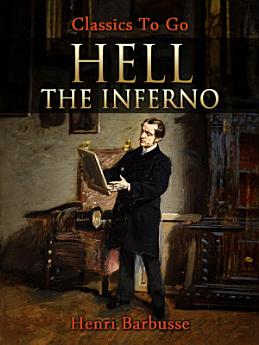Hell, or, The Inferno
Oct 2017 · Otbebookpublishing
Ebook
144
Pages
family_home
Eligible
info
reportRatings and reviews aren’t verified Learn More
About this ebook
"Hell", also "The Inferno" (French: L'Enfer) is a 1908 novel by Henri Barbusse,in which the unnamed narrator peers into a hole in the wall of his hotel room. From the other side, he witnesses lesbianism, adultery, incest, and death. It is only when he feels he has uncovered all the secrets of life that he decides to leave the room for good. But, as he attempts to leave, he is overcome with a backache and blindness. (Wikipedia)
About the author
Henri Barbusse (1873-1935) was a French novelist, journalist, and fervent pacifist whose life and work were deeply intertwined with the tumultuous events of the early 20th century. Born in Asnières-sur-Seine, Barbusse initially pursued a career in journalism and poetry before turning to prose. His experiences as a soldier in World War I profoundly shaped his worldview, leading him to become an outspoken critic of war and a passionate advocate for social justice.Barbusse's literary contributions extend beyond his novels; he was also a prolific essayist and editor. He founded the influential literary magazine "Clarté," which became a platform for intellectuals and writers advocating for peace and socialism. His works often grappled with the horrors of war, the struggles of the working class, and the quest for a more equitable society.Notably, Barbusse's political activism brought him into the orbit of the French Communist Party, and he became a vocal supporter of the Soviet Union, a stance that sparked considerable controversy. His alignment with communism and his critiques of capitalism and imperialism resonated with many contemporary writers and thinkers, influencing figures such as Romain Rolland and André Gide.Barbusse's revolutionary ideas and unwavering commitment to his principles make him a compelling figure for modern readers interested in the intersections of literature, politics, and social change. His legacy is a testament to the power of the written word to challenge the status quo and inspire movements for justice and peace.
Rate this ebook
Tell us what you think.
Reading information
Smartphones and tablets
Install the Google Play Books app for Android and iPad/iPhone. It syncs automatically with your account and allows you to read online or offline wherever you are.
Laptops and computers
You can listen to audiobooks purchased on Google Play using your computer's web browser.
eReaders and other devices
To read on e-ink devices like Kobo eReaders, you'll need to download a file and transfer it to your device. Follow the detailed Help Center instructions to transfer the files to supported eReaders.








